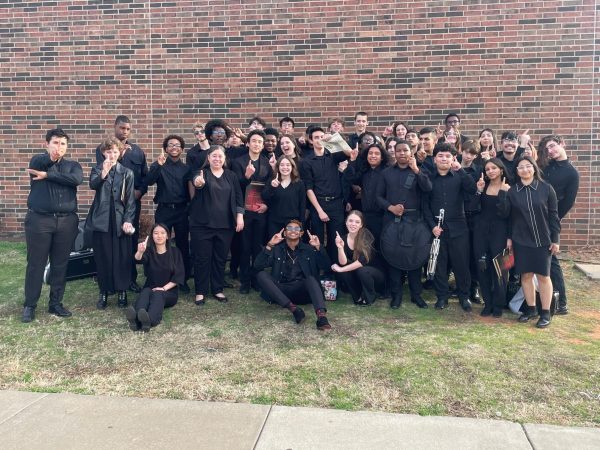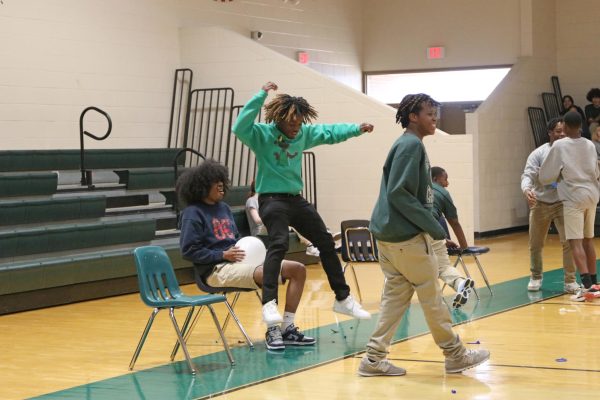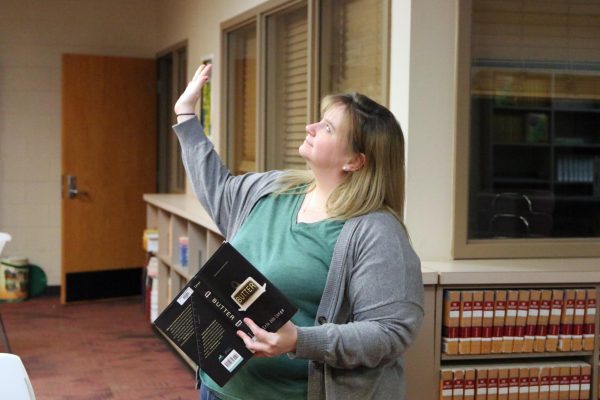One step at a time

September 14, 2016
(This story is part of an ongoing series about people with disabilities in the Harding community.)
One, two, three. Left, right, left. One step at a time.
That’s the mantra I repeat to myself most mornings as I’m climbing the stairs to my third floor locker.
I was born with Cerebral Palsy, a chronic condition which limits the muscle control and range of motion in my legs.
Specifically, I am affected by Spastic Diplegia. In simple terms, the muscles in my legs tighten more frequently, and to a greater degree than they should. This affects my life in various ways, some of which are more apparent than others.
Although Cerebral Palsy can affect people in a myriad of ways, and with varying degrees of severity, I am lucky enough to have a relatively minor case. I can generally do most of the things my peers can, albeit sometimes at a slower pace.
For example, I do at least 15 minutes of stretching and strengthening in the morning in order to help me get ready for the day. Fifteen is my general baseline but sometimes I have to do more.
There can be several factors that affect my condition, including nerves or the weather. For example, I enjoy public speaking, and it’s never really given me substantial angst. However, the adrenaline rush and excitement that comes just before or during a performance causes my legs to shake as though I were having a panic attack of some kind. Although it’s not a substantial hindrance, it frustrates me to appear nervous when I feel confident and prepared.
My cerebral palsy also worsens in the winter when it gets cold outside. The body’s natural response to cold temperatures is to curl in on itself to conserve heat. Because the muscles in my legs are already tighter than normal, the cold weather worsens my condition, making it more difficult to walk.
Now obviously I wouldn’t be going to Harding if I couldn’t handle the stairs several times a day, however it’s more of a challenge for me than for others.
In this way, Harding has been very willing to accommodate me. Last year, I was given a second set of textbooks so that I would not have to carry both my notebooks and textbooks on my walk home. Even though I live less than a mile away, it’s still a relief not to have to carry those extra couple pounds.
I also have two lockers, one on the second floor and one on the third. This is helpful because stairs in general are more challenging for me than they might be for the average person. My advisory’s locker is on the second floor, but most of my classes are on the third floor. Absent the third floor locker, I would have to either go up and down the stairs after every class, or carry two classes worth of books with me, neither of which is practical for me.
That being said, even with the third floor locker, passing period is still stressful for me. This year my third floor locker is in the science wing, which is still a little bit of a trek to make in five minutes.
Although you might not necessarily expect it to, my impaired range of motion significantly affects my walking speed. Even though I’m going straight from my locker to class, I often arrive in the middle or towards the end of passing period. I often have to move as fast as possible just to arrive at class on time.
Although the school has been accommodating in many ways, it’s very frustrating that I was assigned Mrs. Gilson’s advisory. Not because I dislike Mrs. Gilson, but because she has the farthest classroom from the rest of the school.
If I want to do my geometry homework during study hall, I have to put my AP Euro things away in my second floor locker, go up to the science wing to get my geometry books, and then go all the way back to the choir room. I struggle to go all that way in five minutes.
In all honesty, it’s frustrating to have to remind people of my limitations over and over again, and it’s not just a school thing. If I had a dollar for every time I had to tell my dad to slow down when we were walking, I could probably buy a house in Nichols Hills.
I am very open about my disability so I don’t mind when people ask me questions. Usually people are kind enough to ask polite and intelligent questions. I’ve had a couple different teachers and students come ask me if I have a disability and I try and give them the most truthful and easily understood answer I can.
However, last year I was approached in the middle of class by a fellow student who was a little less couth.
“Don’t get offended,” she said, “But why do you walk weird?”
I was bewildered to say the least. First of all, preceding a statement with “Don’t get offended” does not automatically make it inoffensive, nor does it exempt you from the rules of basic human decency.
Secondly, not only were there better ways to phrase the question, we were also in the middle of class. I do not have time to explain my cerebral palsy to you in the time it takes for the teacher to hand back assignments, and frankly it’s a little offensive to be asked to try.
Overall however, my experience at Harding as a disabled person has been positive. Although not everything is fixable, especially considering the school is such an old building, I appreciate the administration’s willingness to work with my needs.
The trick is to take it one step at a time.










Mr. Ferguson • Oct 20, 2016 at 8:29 am
Excellent piece, Natia! Idea- start charging people a dollar any time you have to tell them to slow down!